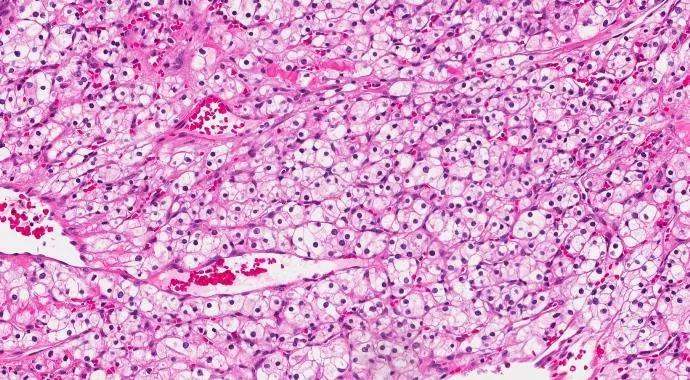Researchers validate a 16-gene assay

Oncologists use clinical and pathological parameters to determine the likelihood of tumor recurrence after nephrectomy in localized clear cell renal cell carcinoma. These assessments can be improved by targeting the molecular characteristics of patients’ tumors, says Brian Rini, MD, of Cleveland Clinic’s Department of Solid Tumor Oncology.
Advertisement
Cleveland Clinic is a non-profit academic medical center. Advertising on our site helps support our mission. We do not endorse non-Cleveland Clinic products or services. Policy

In a recent study, Dr. Rini and colleagues report their efforts to develop and validate a multigene signature to improve recurrence prediction. The researchers analyzed 732 genes expressed in 942 patients with stage I to stage III clear cell renal carcinoma who underwent nephrectomy, looking for associations with clinical outcomes. Eleven genes associated with recurrence-free intervals and five reference genes served as the basis for a recurrence score algorithm. The researchers then confirmed the recurrence score as an accurate predictor of clinical outcome.
Read the HemOnc Today article with Dr. Rini.
Advertisement
Advertisement

First-of-its-kind research investigates the viability of standard screening to reduce the burden of late-stage cancer diagnoses

Global R&D efforts expanding first-line and relapse therapy options for patients

Study demonstrates ability to reduce patients’ reliance on phlebotomies to stabilize hematocrit levels

A case study on the value of access to novel therapies through clinical trials

Findings highlight an association between obesity and an increased incidence of moderate-severe disease

Cleveland Clinic Cancer Institute takes multi-faceted approach to increasing clinical trial access 23456

Key learnings from DESTINY trials

Overall survival in patients treated since 2008 is nearly 20% higher than in earlier patients